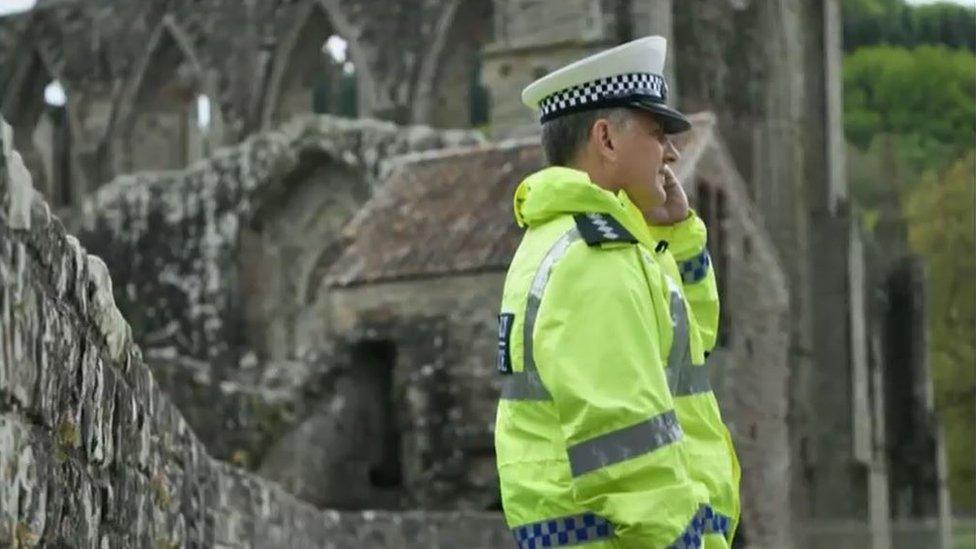Lockdown penalties defended as 'proactive' by police chief
- Published
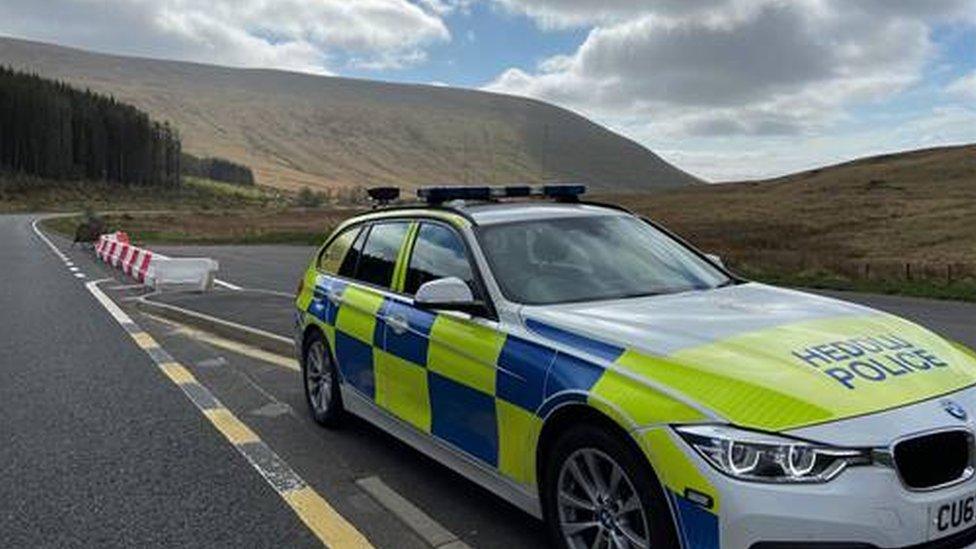
Dyfed-Powys Police has issued more fines for lockdown breaches than any force in the UK
Dyfed-Powys Police's commissioner has said "proactivity" is behind the force issuing more fines than any other for lockdown breaches.
Dafydd Llywelyn spoke as Wales braced itself for the lifting of the Welsh Government's five-mile "stay local" travel guidance on Monday.
Up to 22 June, the force issued 1,651 fixed penalty notices. The next highest was North Yorkshire Police with 1,122.
Mr Llywelyn said enforcement was used as the "final measure".
The Dyfed-Powys force serves mid and west Wales, including popular tourist destinations such as the Brecon Beacons, Ceredigion and Pembrokeshire.
Over one two-day period its officers turned around 1,000 cars for breaches of lockdown regulations.
From Monday people will be able to travel as far as they wish in Wales for the first time since 23 March.
However, they can only stay overnight in one other home nominated as part of their "extended household" - Wales' version of England's support "bubbles".
Mr Llywelyn told BBC Radio Wales' Sunday Supplement it was a small minority who broke the rules.
"Some might question why Dyfed-Powys Police, one of the smallest in terms of the population size of police forces across England and Wales, albeit the largest geographically, has actually issued more tickets than any other police force," he said.
"And a lot of that is due to the proactivity."
Of the other Welsh forces, figures up to 22 June showed North Wales Police issued 464 penalties, South Wales Police 315 and Gwent Police 128 - all with much larger populations than Dyfed-Powys.
In England, the most penalties were issued by North Yorkshire Police with 1,122 with the smallest number being 35 by the Ministry of Defence Police.

People were warned not to come into Wales from England to because of different lockdown rules
Mr Llywelyn said his force explained the rules to people "lots" during lockdown's first few weeks.
But four or five weeks in, people were still travelling "hundreds of miles" into the force's area.
"The police have, from the outset, tried to use the four-phase approach that they talked about - the engaging, explaining, encouraging, and enforcing as the final measure," he said.
"We have seen lots of people coming over the border from England and I do, to a degree, feel some sympathy towards them, because the messaging has not always been that clear from central UK government about the differences between the regulations in the different nations across the UK."
- Published5 June 2020
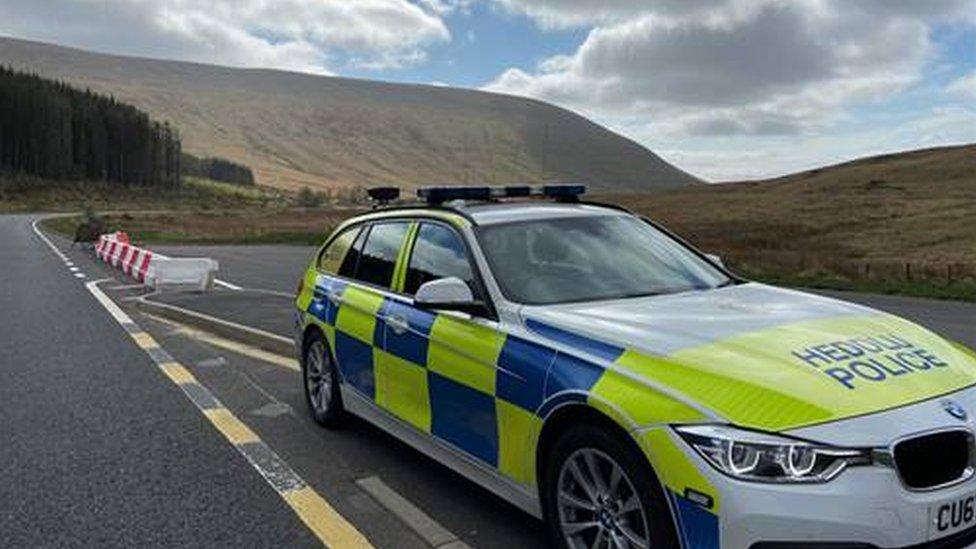
- Published20 June 2020
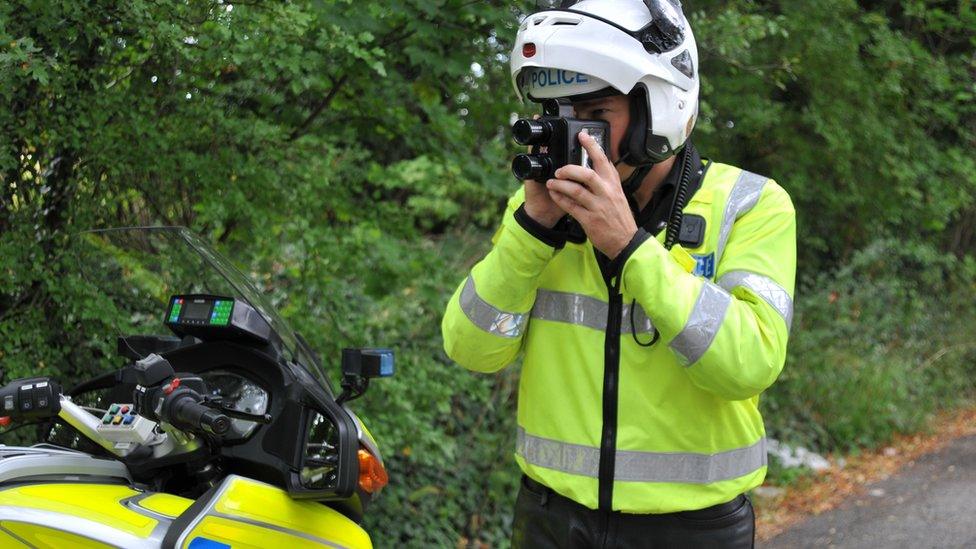
- Published21 May 2020
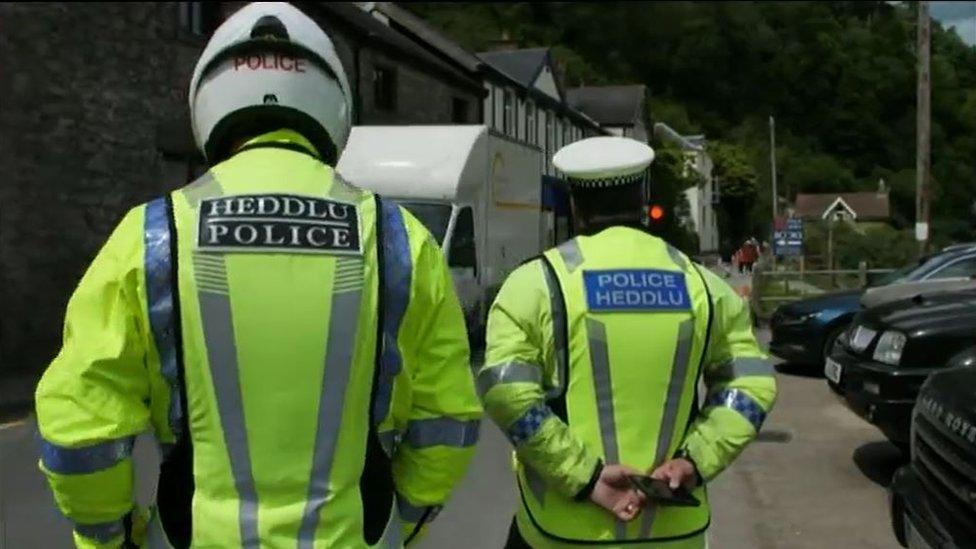
- Published16 May 2020
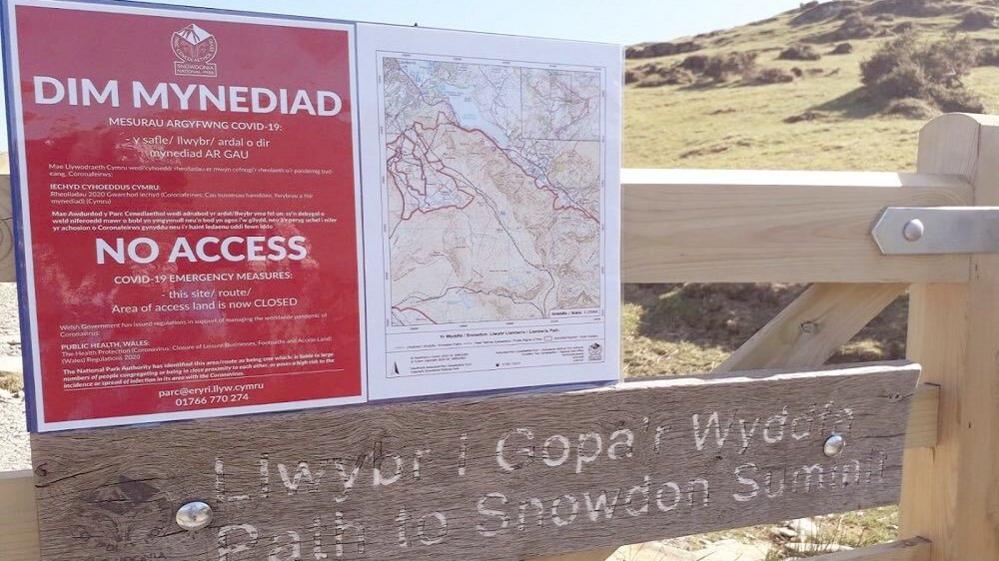
- Published14 May 2020
